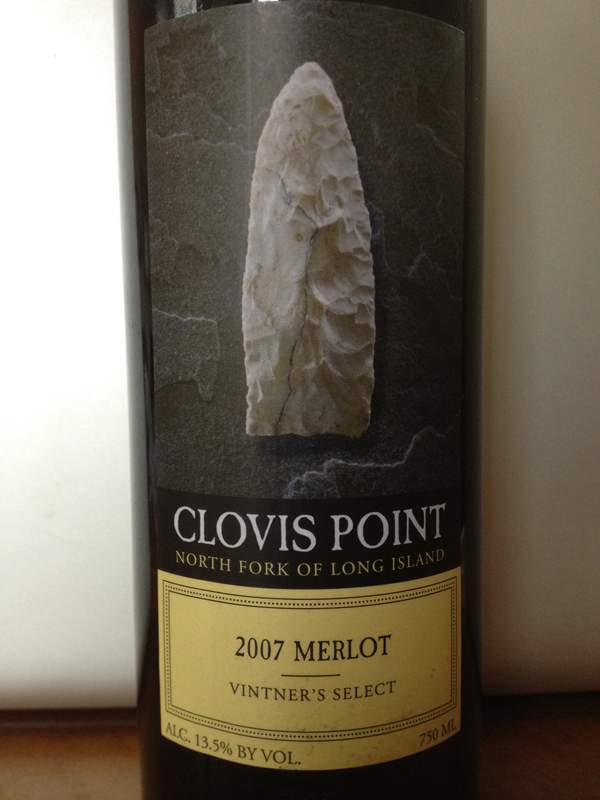Putting It All On the Table: The Future of American Wine
By Evan Dawson, Finger Lakes Correspondent
Alder Yarrow of the Vinography blog wrote a great post about wine in America last week and I wanted to build on what he very effectively wrote.
First, while it might take years of effort, the most effective way to erode the stigma of pretension that wine endures is to get it on the dinner table in more families, more often.
One big step would be to lower the legal drinking age to 18. How is this related? This country has strange obsessions with morality, even though most efforts tend to have the opposite of the desired effect (for example, reference the recent news that kids who make abstinence pledges have just as much pre-marital sex, only with less protection than their peers). The idea that alcohol is taboo leads to silly efforts to keep drinks out of the hands of young adults completely, and they tend to respond by seeking out the cheap, easy-to-chug options. Lowering the drinking age is the first step in encouraging responsible consumption and taking the forbidden fruit aspect away from alcohol.
When getting drunk on Natty Ice goes from an alluring weekend idea for some teenagers to just plain stupidity, we'll be moving in the right direction. But there's still this steep hurdle to climb when it comes to wine's perception.
My friends in Europe grew up with plenty of wine in the house, and they tell me that's largely because wine regions are so close. Maybe their family is in the industry, or they know someone who is, or they've simply traveled to their local wine country to check it out. And what they find is that pretension is not found in the dirt under the fingernails of winemakers. It's not found in the vineyard staff, pouring their souls into their beloved varietals. Pretension most often comes from the collectors who want you to know that they have a case of '82 Latour, and if you don't know what that is, well, that's because you're an unsophisticated idiot.
Of course, those people are the idiots, and the good news is that the vast majority of wine drinkers are nothing like that. The problem in the United States is that most people don't live within driving distance of a wine producing region (though that's certainly changing). But for those of us in NY state, we have the advantage of being able to meet the men and women making these lovely wines. Sure, the limo bus is a fun way to check out the scene - I've certainly done it — but wouldn't it be nice if more families took the tours that wineries offer in the Finger Lakes, in the Hudson Valley, on the Niagara Escarpment and on Long Island? And wouldn't it be helpful if the wineries that don't offer tours opened their production facility doors and let families in?
My kids are going to grow up knowing the smell of a fermenting batch of wine. They're going to know that wine is not for the high-society types alone, And they're going to know that their mom and dad treasure their '06 Ravines, or their Roman Roth merlots, or their '05 Loire Valley reds — even though they bought the bottles for less than $15.

















Evan: You know that I’m on board with this 100% and I know that I’m doing everything that I can to make sure that Jackson grows up with a keen understanding of and respect for wine and its place in our lives.
Where did we go for Jackson’s very first outing, at age six weeks, when the “quarantine” period ended? That’s right, a winery. We took him to Roanoke Vineyards where he met the owners, who have now become recognizable figures in his life.
Since then, we’ve visited dozens and dozens of wineries with him, both here on Long Island and in the Finger Lakes, and almost to a winery, we’ve been welcomed with open arms. Some of my most cherished memories with him in his first 2 years are of him running up and down vineyard rows with Nena at Peconic Bay Winery and him hanging out in the barrel room at Paumanok Vineyards.
Wine will be an ‘every day’ thing for him, but still special. It’s not going to be taboo in the least. He’ll know that his dad is a wine geek, but not a wine snob.
And we can only hope that more kids are exposed to the same ideas. That’s what can change wine in America.
I must strongly disagree here as just lowering the drinking age won’t help the situation.
First, there are numerous studies that show lowering the drinking age will increase the number of traffic accidents and fatalities among teenagers. You can check the American Medical Assn site for info on such studies (http://www.ama-assn.org/ama/pub/category/13246.html).
Second, lowering the drinking age does not mean that teenagers will learn responsible drinking. Such responsibility should come from their parents yet lowering the drinking age does not mean all, or even many, parents will do so. Until the vast majority of parents start educating their children properly about responsible alcohol use, lowering the drinking age will cause far more harm than good.
It is great how some parents do teach responsible alcohol consumption, yet that is not the norm in the US. And that is the key to making the US more of a “wine culture.” Changing the drinking age is not a solution. Rather, parents need to better educate their children about alcohol.
Richard,
Does it not stand to reason, then, that we’d see fewer alcohol-related accidents if the drinking age were raised to 22? 25, perhaps? I don’t intend to sound flippant. This is an honest question.
It is unfortunate that drinking and driving leads to so many accidents & fatalities. Yet preventing accidents should not be the core reason for lawmaking concerning personal rights. If that were the case, we might as well raise the drinking age by a year or two as it would likely decrease the number of fatalities. Same with raising the draft age, which would undoubtedly prevent the loss of teenage life when in effect.
It seems to me that we need to figure out when kids are expected to act as adults and let them go at it - meaning that the laws on the books need to be better aligned. Either we call 18 year olds adults and let them have the whole kit and caboodle - vote, marry, charged as an adult for a crime, be drafted, AND drink - or we decide that nowadays kids need a few more years of maturity and push all the rights up to 21.
Neither one of these things will happen, I’m pretty certain. Too many people with too many differing opinions on alcohol policy in this country. And that is why I personally love to hear about the wine experiences Lenn has had with his kid and the ones Evan plans for - it might take a generation or so, but that’s how we get changes in attitude. We can always pass the time debating the drinking age.
Yay. I just realized that if I want to affect policy, I better get started on a family of a dozen or more…
Evan:
Maybe we would see fewer alcohol-related accidents if the drinking age were raised, though there is probably a curve of diminishing returns. We could be the like Aztecs, where the minimum drinking age was 52, with some exceptions.
My point is that simply lowering the drinking age is not going to magically fix everything. Lets reverse the gist of your reply. If lowering the drinking age is so good, why not lower it to 16, or 12. Shouldn’t that be even better?
I am unaware of any study that shows that just lowering the drinking age is going to accomplish what you wish. Unless there is also someone there to teach those teenagers about responsible drinking, nothing will change. If you want change, then lead the fight to better educate parents, to get them to teach their children about the proper use of alcohol.
I’m not entirely sure if one outcome (a lower drinking age) will necessarily be followed by the desired effect (broader appreciation of wine).
Chugging Natty Ice is easily approached in adolescence (and quite fun if beer pong is involved). Some of us move on from that point; others do not.
I imagine that most of the million of individuals of this generation who have discovered wine despite the non-wine backgrounds of their families will impart some of that appreciation to their own children. It would be great to see that materialize quickly or with some sort of tangible guarantee, but I imagine patience must be employed by enthusiasts.
I am relatively optimistic.
Richard,
You make a fair point regarding my desire to see the drinking age lowered. We could go on each direction, I suppose. So let me elaborate a bit on my thoughts.
First, I confess that as a Libertarian, I’m simply not interested in passing laws and regulations that limit freedoms. Making it illegal to drive without wearing a seatbelt is wholly absurd. If a person wants to make a decision for which there would be no victim but themselves as a consequence — and in such a scenario possibly reveal the genius of Darwin’s thoughts on natural selection — well, shouldn’t that freedom be protected?
The more difficult question involves granting freedoms that could result in consequences for those other than the person making a choice. I don’t take the matter lightly. But neither do I think that preventing accidents is a good enough reason to take freedoms away. And I say that as a person who has lost a loved one in an accident.
By now it’s perhaps a cliche and yet still effective: If a man or woman can fight and die for their country, can they not enjoy a 12-ounce can of beer or a glass of wine as well? Eighteen years old makes one an adult, as defined by the right to vote and the potential to serve one’s country.
And I stress the point that lowering the legal drinking age would not magically impart wine appreciation among American families. Certainly not. It’s a matter of cultural progress, and taking apart the silly, forbidden fruit idea of alcohol is an important first step. But the second half of my post is just as important.
most kids are drinking well before the legal age. also, drinking and driving is behavior people dont seem to grow out of, its done across the age spectrum, my guess is that statistics would indicate people in their 40′s and 50′s being the worst at it. so i don’t think lowering the drinking age would have an affect on drunk driving in the US, although I agree with your point that it probably wont foster a more intelligent or responsible drinking culture. What I don’t think you realize is how lax our driving standards are. This maybe hyperbole, but i doubt if 5 out of 10 Americans could pass a driving test in England. And yes, 16 is way too young.
Down with wine snobs!
As the Devil’s advocate I must make one point. Not wearing a seat belt is not a victimless crime. If one is in an accident, then you must be treated, in a hospital, which could be using its resources better. It is the same argument that is used to ban smoking, the health care cost which every tax paying citizen must pay.
Evan,
Nothing wrong with being a libertarian. Though the idea does raise some intriguing philosophical issues over the nature of freedoms, consent, what is a victim-less action, etc. Though such issues are probably more off topic here than not.
I agree that it is more difficult when trying to balance freedoms when there could be negative consequences toward others.
Though you state that you do not believe that preventing accidents is a good enough reason to take freedoms away, I must assume there is a threshold there for you as well. Hypothetically, if millions of people died in drunk driving accidents each year, would you still feel that was insufficient reason to lower the drinking age?
Now obviously, millions don’t die. In 2006, about 16,000 people died in alcohol related motor vehicle accidents. But if millions of deaths is unacceptable but 16,000 is acceptable, then where is the line drawn? How many deaths are too many?
And we have to remember that 16,000 is merely the number of deaths in MVAs. It does not include alcohol-related deaths in all sorts of other accidents. It also does not include the financial costs to society, for alcohol treatment, the legal system, health care, insurance, etc. Much which comes back to us in taxes and increased prices. It is more than a matter of freedom vs some accidents. It is something that signficantly affects us in many ways.
When I worked as a part-time public defender, I would say that easily at least 90% of my clients were in trouble due to alcohol/drugs in one way or another.
It is a complicated matter and there are not easy answers.
Richard,
You make good points and, to be honest, the issue regarding a threshold for acceptability exposes the weakness of the Libertarian position. That is, unless one is an absolutist, of which I am not. I am sympathetic to the absolutist position on grounds of principal, but I can’t quite get there myself. I like to think of myself as a pragmatic Libertarian; for example, I favor the abolition of government welfare, but I recognize that doing so overnight would create a deep, destructive effect and so I think the goal, while not ultimately achievable in full, is worth pursuing in steps.
All of which is to say, I don’t know. I don’t exactly know what an “acceptable number” of deaths would be. I think it’s a fair question for you to ask. The problem is that I’m probably more willing than you are to tolerate the inevitable consequences of freedom (a certain number of fatalities, etc) and there again I find myself drifting toward an absolutist position.
But let me try to wriggle free for a moment: I think it’s conceivable that, with time, we would see alcohol-related fatalities decrease with a lower drinking age. Up front? I take your citations as fair and I assume MVAs would rise in the short term. Keep in mind, though, the overall goal is to reduce the desire among kids and teenagers to binge drink. Keeping alcohol away from them (or at least legally doing so) only spurs that impetus.
Thinking out loud, I wonder how the rate of MVAs and fatalities differs in Europe, where the legal drinking age is different. I suppose that might be instructive.
This is quite a long response, and for that I apologize. I appreciate this discussion very much.
Evan,
No need at all to apologize for the content or length of your response. It is always good to have a rationale discussion with someone.
If it were only the drinkers who died, maybe I would not care as much. But, too many innocent people die due to drunk drivers. Plus, and it is a significant point, there is a substantial financial factor involved as well. We all pay more money, in taxes, fees and cost, due to alcohol-related accidents. So there is a definite cost involved with lowering the drinking age, and that cost affects us all.
A couple quick Google searches found some stats for France and the UK.
In the UK, where the legal drinking age is 18, in public, though there is no such age for drinking in private: alcohol deaths have continued to rise, twice what they were 15 years ago.
http://www.statistics.gov.uk/cci/nugget.asp?id=1091
In France, it is said alcohol was directly responsible for 23,000 deaths a year and indirectly responsible for a further 22,000.
http://www.guardian.co.uk/world/2005/nov/25/france.jonhenley
Those are not enocuraging results to support lowering the drinking age.
Hey, Evan, something else which would help greatly is for wineries to expand their product offerings a little more. You can get great wine (REALLY great wine) in Italy in small bottles and juice boxes and Franzia-style fridge taps. Wine is always going to seem pretentious as long as wine-makers limit their customers to bottles and cases. Even some dedicated drinkers have trouble finishing a re-corked bottle before it sours, and frankly there’s always going to be a stigma associated with wine drinking in public places when it requires a glass. Standing on tradition and ceremony is expensive. Lighten up.
I think your hope that getting wine on family dinner tables will help is somewhat misplaced, because really, the kind of family that still gets together for dinner most nights are probably wine drinkers already. What percentage do you think that is?
As far as the drinking age in America, the real issue underlying that is driving of course. The drinking age is 21 and the driving age is 16, and frankly the reverse would be more logical. Teenagers don’t need alcohol to crack up cars. They do that just fine on their own — ask any actuary. I’d rather have experienced drinkers learning to drive than experienced drivers learning to drink. Not that any of this matters as long as there are organized labor and auto industry lobbyists in D.C., who would never allow lawmakers to pull the plug on the teenage driver market, but still.
Tyler,
Fine points; I should say that the idea of wine on a family’s dinner table is more of a metaphor than an actual end goal (though it’s still a worthy goal). I’d like to see it “normalized” by becoming more of an everyday beverage, no matter the scenario for the family or person involved.
Amen to the silliness of having to drink wine out of wine glasses. I think Georg Riedel’s family has discovered some interesting things, but there are plenty of occasions when I’d be happy sipping from any container. When my wife and I went to Tuscany last year we drank Brunello on a park bench from small plastic cups. And it was gorgeous!
I like this post. It has a soft, fruity finish.
Very interesting posts. I have a limousine company which sometimes hosts underage clients and I see my fair share of children acting out with liquor. I don’t believe we have a drug/alcohol problem but a parenting/schooling/peer problem! Children/Young Adults are only acting how we taught them to act via media and raising them. Children today have no responsibility or accountability for their actions and that is a parenting problem. Of course every adolescent hopes to become an adult someday and drinking seems to be a right of passage to that day.
Furthermore, I believe it’s really ironic for our government to say it’s alright to die for America but not alright to have a alcoholic beverage. I believe this clearly shows the discrepancies with our use or I should say unuse of logic by treating the symptoms and not dealing with the bigger problem of inadequate parenting. By taking parenting away from the parents I believe the parents become less involved with their children.
To fix this debacle parents need to become more involved and less worried about their new golf stroke. Kids need mentors and parents today aren’t making the grade with the rest of the world. Other countries are breaking away from our children in many areas: discipline, attitude, health, etc…… Our country is not progressing socially. We need to be role models to our future and encourage them to do what’s right!
I believe parenting/marketing/and social media are to blame for many of our childrens misfortunes with illegal drugs and alcohol! Sorry parents, but don’t trust schools or government to do all the work and maybe you will save yourself more work when you’re a senior.